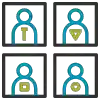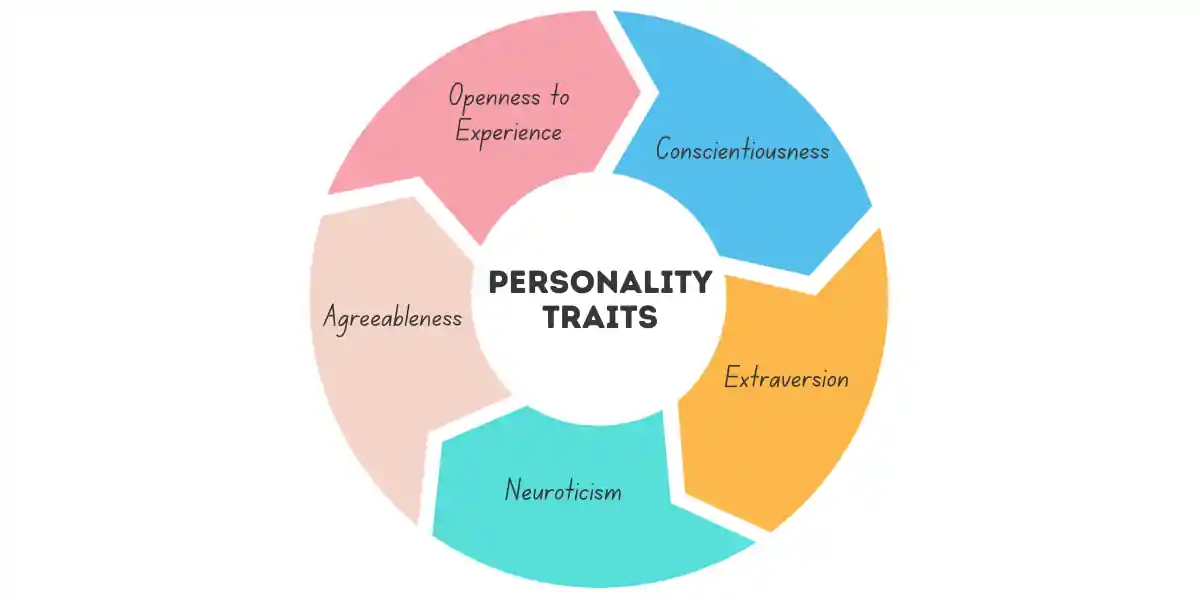Master the NEO-PI Assessment: Your Ultimate Prep Course for Success
- Overview
- Sample Questions
- Curriculum
- Reviews
Welcome to a transformative journey into the world of personality assessment!
Our NEO-PI Mastery Course meticulously unveils the intricacies of the NEO Personality Inventory, providing you with a comprehensive understanding of this renowned assessment tool. Immerse yourself in a program rich in detailed insights and customized practice sessions, all crafted to deepen your grasp of the NEO-PI.
Step into this journey of discovery with us, and transform your NEO-PI goals into an extraordinary achievement!

NEO Personality Inventory Course
Last Updated: Nov 05, 2024
Course Content
-
 Intro to NEO Personality Inventory 2 Steps - 20 MinutesBuy this Course: Get full access to all lessons, practice tests and guides.
Intro to NEO Personality Inventory 2 Steps - 20 MinutesBuy this Course: Get full access to all lessons, practice tests and guides. -
 The Theoretical Basis Behind NEO-PI 1 Step - 50 MinutesBuy this Course: Get full access to all lessons, practice tests and guides.
The Theoretical Basis Behind NEO-PI 1 Step - 50 MinutesBuy this Course: Get full access to all lessons, practice tests and guides. -
 Breaking Down NEO PI Scales 1 Step - 40 MinutesBuy this Course: Get full access to all lessons, practice tests and guides.
Breaking Down NEO PI Scales 1 Step - 40 MinutesBuy this Course: Get full access to all lessons, practice tests and guides. -
 Breakdown of Domains 5 Steps - 2 Hour 45 MinutesBuy this Course: Get full access to all lessons, practice tests and guides.
Breakdown of Domains 5 Steps - 2 Hour 45 MinutesBuy this Course: Get full access to all lessons, practice tests and guides. -
 Mastering NEO-PI Assessment 1 Step - 50 MinutesBuy this Course: Get full access to all lessons, practice tests and guides.
Mastering NEO-PI Assessment 1 Step - 50 MinutesBuy this Course: Get full access to all lessons, practice tests and guides. -
 Practice Quizzes 2 Steps - 1 HourBuy this Course: Get full access to all lessons, practice tests and guides.
Practice Quizzes 2 Steps - 1 HourBuy this Course: Get full access to all lessons, practice tests and guides.
Understanding the NEO-PI Assessment
The Neuroticism, Extraversion, Openness Personality Inventory (NEO-PI), crafted by psychologists Paul T. Costa Jr. and Robert R. McCrae, stands as a pivotal tool in psychological evaluation. At its core, the NEO-PI is grounded in the Five Factor Model of personality, encapsulating the essential traits of Neuroticism, Extraversion, Openness to Experience, Agreeableness, and Conscientiousness. This assessment offers a deep dive into one’s personality, examining emotional responses, social behaviors, openness to new experiences, cooperative tendencies, and self-discipline.
Employers find the NEO-PI particularly valuable for its detailed insights into personality, aiding in making informed choices in recruitment, team building, and personal development. Gaining proficiency in understanding the NEO-PI enriches personal self-awareness and also opens doors to better professional opportunities.
Versions of NEO-PI
The NEO Personality Inventory (NEO-PI), created in the 1970s, has evolved to keep up with psychological research. Here are the main versions:
NEO-PI-R (Revised): Launched in 1990, this revision improved upon the original NEO-PI. It offers enhanced question wording and norms suitable for various age groups. With 240 items, it delves deeper into the Big Five traits than the original, providing a more comprehensive, untimed assessment.
NEO Five-Factor Inventory (NEO-FFI): This version streamlines the NEO-PI-R, condensing it into just 60 questions, with 12 for each trait. Ideal for quick evaluations, the NEO-FFI is shorter and faster, taking about 15 minutes to complete, compared to the more extensive NEO-PI-R.
NEO Personality Inventory-3 (NEO-PI-3): The NEO-PI-3, building on the NEO-PI-R, features updated items and norms, catering to a broader audience. It maintains the 240-item format of the NEO-PI-R but is more culturally inclusive and suitable for a wider age range, making it the most versatile and updated version among the three.
The version of the NEO-PI test you take depends on its specific purpose and who is administering the test. The three versions — NEO-PI-R, NEO-FFI, and NEO-PI-3 — all read personality through the same domains and facets, following a consistent structure. The NEO-FFI is a more concise version of the NEO-PI-R with 60 questions, while the NEO-PI-3, a recent update, features enhanced items and norms to accommodate a broader age group, enhancing its reliability and applicability.
For instance, research targeting individuals with education up to the 8th grade would benefit from the NEO-PI-3, designed for simpler comprehension levels. In contrast, for hiring purposes, any version can be used, with the NEO-FFI being a time-efficient choice.
Our course is designed to familiarize you with the NEO Personality Inventory in its entirety. The questions in our course, while not adhering to the NEO-PI’s exact scoring system, closely resemble those in the test, covering all domains for comprehensive practice.
The Core Dimensions of NEO-PI
Dive into the NEO Personality Inventory (NEO-PI), a tool crafted to unravel the complexities of your personality through the Five Factor Model. Explore these core domains, each a key to understanding different aspects of who you are:

Openness to Experience: Unleash your creativity and curiosity. Discover how open you are to new ideas and artistic expressions.
Conscientiousness: Measure your productivity and organization. Find out how your attention to detail shapes your path to success.
Extraversion: Illuminate your social interactions. Gauge your sociability, assertiveness, and love for human connection.
Agreeableness: Navigate your interpersonal relationships. Learn about your compassion, empathy, and ability to create harmony.
Neuroticism: Understand your emotional stability. See how you cope with stress and manage mood swings.
Join our NEO-PI course for a sneak peek into these domains, each offering insights to foster personal growth, guide career paths, and enhance human interactions. Get ready to weave the unique threads of your personality into a comprehensive understanding of yourself
Question Types & Test Format
NEO-PI is a self-reporting inventory, consisting of 240 items assessing 5 broad domains of one’s personality. This test is untimed but generally takes 35-45 minutes to complete. Response pattern consists of the applicant rating it on a 5-point scale ranging from “strongly agree” to “strongly disagree”
Example NEO-PI Questions
Let’s take a look at some sample questions-
This response suggests that the person strongly believes they are often sought out for their ability to create a lively and engaging atmosphere. It indicates a high level of extroversion and a preference for social interactions.
Choosing this option implies that the person believes they are occasionally sought out for their ability to create a lively atmosphere. They may have extroverted tendencies and enjoy social interactions but not necessarily all the time.
Selecting this option suggests that the person neither agrees nor disagrees with the statement. They might feel unsure or indifferent about whether they are sought out for creating a lively atmosphere. This could indicate a lack of strong extroverted or introverted tendencies.
This response suggests that the person doesn’t completely agree with the statement but doesn’t strongly deny it either. They may occasionally create a lively atmosphere but not often. They may have a mix of introverted and extroverted qualities.
This response indicates that the person strongly believes they are not sought out for their ability to create a lively atmosphere. It suggests that they may perceive themselves as introverted or not very outgoing. They might prefer quieter, more solitary environments.
This response suggests that the person strongly believes that taking a collaborative approach to problem-solving is a significant strength. It indicates a high level of agreeableness and a preference for working harmoniously with others to solve problems.
Choosing this option implies that the person believes that taking a collaborative approach to problem-solving is one of their strengths. They are likely to be agreeable individuals who value cooperation and teamwork.
This response indicates that the person neither agrees nor disagrees with the statement. They might feel unsure or indifferent about their strengths in collaborative problem-solving. This could suggest a lack of strong agreeable or disagreeable tendencies.
Selecting this option suggests that the person doesn’t completely agree with the statement but doesn’t strongly deny it either. They may sometimes engage in collaborative problem-solving but do not consider it a particular strength.
This response implies that the person strongly believes that taking a collaborative approach to problem-solving is not one of their strengths. They may prefer a more competitive or independent approach to problem-solving.
Selecting “strongly agree” suggests that the individual highly values seeking support from others during emotionally taxing times. It may reflect a strong need for social support and a belief that sharing emotions and seeking help is crucial for their emotional well-being.
Opting for “agree” indicates that the individual believes in seeking support from others during emotionally taxing times. They likely value social connections and believe that sharing their emotions and seeking help from others can be beneficial for their well-being.
Choosing “neutral” suggests that the individual doesn’t strongly lean either way and may have a balanced perspective on seeking support during emotionally taxing times. It may reflect a willingness to consider different approaches depending on the situation.
Selecting “disagree” indicates that the individual generally prefers not to seek support from others during emotionally taxing times but might consider it occasionally. This may imply a moderate level of self-reliance or a preference for keeping their emotional struggles more private.
Choosing “strongly disagree” suggests that the individual strongly believes in handling their emotional distress independently without seeking support from others. It may reflect a high level of self-reliance, emotional resilience, or a privacy preference when dealing with emotions.
Here is What You Can Expect in Our Prep Course
Unveil Your Potential with These Exciting Features:
📚 Comprehensive Prep Guide: Packed with insider tips and strategies.
🔍 In-Depth Domain Insights: Explore hidden connections between motives, values, and preferences.
📊 Score Clarity: Understand your results with a detailed explanation of what your scores really mean.
💯 100+ Practice Questions: An extensive library of practice questions.
🌟 Realistic Trait-Related Questions: Questions that mirror the real NEO-PI
You’re one step away from mastering the NEO-PI. Our course offers an in-depth exploration of personality assessment, blending expert knowledge with practical strategies. It’s not just a preparation but a transformative journey into understanding and leveraging your unique traits.
Join us now and unlock a deeper understanding of yourself and your professional potential. This is your moment to shine in the NEO-PI and beyond. Let’s make it happen together!

Created by: Tanoo Purohit
MSc - Clinical Psychology, Psychometric Tutor, Prepterminal Test Expert
1426 students, 4.5, 265 Reviews
I’m Tanoo Purohit, with a BA honors and an MSc in Clinical Psychology from the renowned National Forensic Sciences University. Over seven years, I’ve studied the intricacies of the human psyche (as a part of my curriculum and practice). Proudly associated with PrepTerminal, I serve as a Psychometric Course Author and am recognized as a Psychological Test Expert. In every course I craft, I merge my expansive knowledge with relatable insights, ensuring that complex psychological concepts are presented with clarity and resonance for all learners. Feel free to contact me at [email protected].
